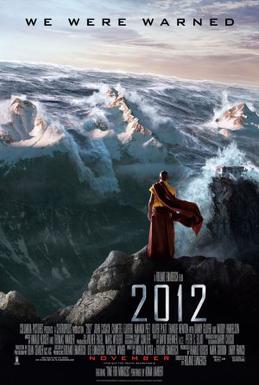
Apparently, JTA doesn’t buy the apocalypse hype.
At least not this time.
Rumors about the world bearing a Dec. 21, 2012 expiration date — tied to a Mayan apocalypse prediction — haven’t gotten any attention from JTA yet. For one thing, there may not even be a Mayan apocalypse. The International Business Times, citing the leader of the National Council of Elders Mayas, Xinca and Garifuna, explains that Dec. 21 was never interpreted as the end of the world by the Mayan tradition. In Russia, apocalypse talk has been officially denounced.
But in 1999, when fears of a Y2K meltdown was imminent, JTA ran a special series of six reports reporting various groups’ responses to the apocalypse. (Spoiler alert: One of these responses played a role in Michael Chabon’s "The Yiddish Policeman’s Union.")
From the JTA archive, here’s what apocalypse reportage looks like:
[[READMORE]]
Peaceful Millennialists Distance Themselves from Deported Cult(Jan. 19, 1999)
Brother David, 58, is one of some 100 evangelical Christians who have gravitated to the area of Bethany on the far side of the Mount of Olives to prepare for what Christians believe will be the Second Coming of Jesus.
The activities of Brother David and the small group of 20 or so who meet to pray each Wednesday evening above the Almanar Pharmacy are once again coming under intense scrutiny following the recent arrest and deportation from Jerusalem of the Concerned Christians cult.
The cult members were suspected of planning violent actions in the coming year in order to bring about the Second Coming of Christ.
Mississippi Preacher Devotes Life to Birthing Red Heifer in Israel (Sept. 3, 1999)
If Clyde Lott has his way, several hundred cows will fly to Israel this December. And the Mississippi preacher has some unlikely allies in his quest: Jews living in Israel and the West Bank.
The cows, the first of what Lott hopes will be 50,000 sent to the Jewish state, are part of his plan to fulfill a biblical prophecy that a red heifer be born in Israel to bring about the "Second Coming" of Jesus. The return of Jesus is part of a Christian apocalyptic vision of the end of time, which includes the slaughter of those who don’t accept the Christian messiah as their savior.
Evangelical Christian Support for Israel Intensifies As the New Millennium Nears (Sept. 3, 1999)
The end of centuries is often fertile ground for apocalyptic movements, but as the year 2000 approaches, this is the first time that so many Christians and Jews have worked so closely together, according to Richard Landes, the head of Boston University’s Center for Millennial Studies.
Tourists Expected to Flood Jerusalem Despite Recent Expulsions of Christ (Nov. 16, 1999)
Melodic harmonies echo through Dominus Flevit, a small-but-quaint church on the slopes of the Mount of Olives, as a group of 30 Christian Bible scholars and pastors sing "Hallelujah to the Lord," first in English, then Hebrew.
Built in 1955 on the ruins of an ancient church, the teardrop-shaped structure commands a breathtaking view of the eastern walls of Jerusalem’s Old City. According to Christian tradition, Jesus, knowing his prophetic message would be rejected, wept here as he viewed the illusion of a tranquil city that, in fact, was bitterly divided, its Jewish population suffering under a brutal Roman occupation.
While the World Parties Like It’s 1999, What’s a Jew to Do when It’s Shabbaat? (Nov. 24, 1999)
Rabbi Arthur Hertzberg, a humanities professor at New York University, will do "what I always do on Shabbas," he said. "I will have dinner, will study the sidra [Torah portion of the week] a bit and go to sleep, and then the next morning I will go to shul. Period.
"Any Jewish hoo-ha about the millennium is essentially playing into Christian hands. It’s not our party, not our millennium, and let’s cut it out," Hertzberg said.
Is Y2K a Jewish Issue? Depends on Who You Ask (Dec. 3, 1999)
Still others say that no matter what our personal feelings about the change in the Christian-created calendar, it would be naive for Jews to ignore the turn of the millennium.
Jews should be prepared for possible technological problems, they say, and should be concerned about a potential backlash by right-wing Christians whose messianic aspirations remain unfulfilled when the calendar rolls over and Jesus has not returned to earth.
"Though apocalyptic expectations have always been proven wrong, wrong doesn’t mean inconsequential," Richard Landes, director of the Center for Millennial Studies at Boston University, warned at a recent symposium on the millennium, which was sponsored by the Anti-Defamation League.
"The more wrong people are, the more passionate they are," he said.
JTA has documented Jewish history in real-time for over a century. Keep our journalism strong by joining us in supporting independent, award-winning reporting.





